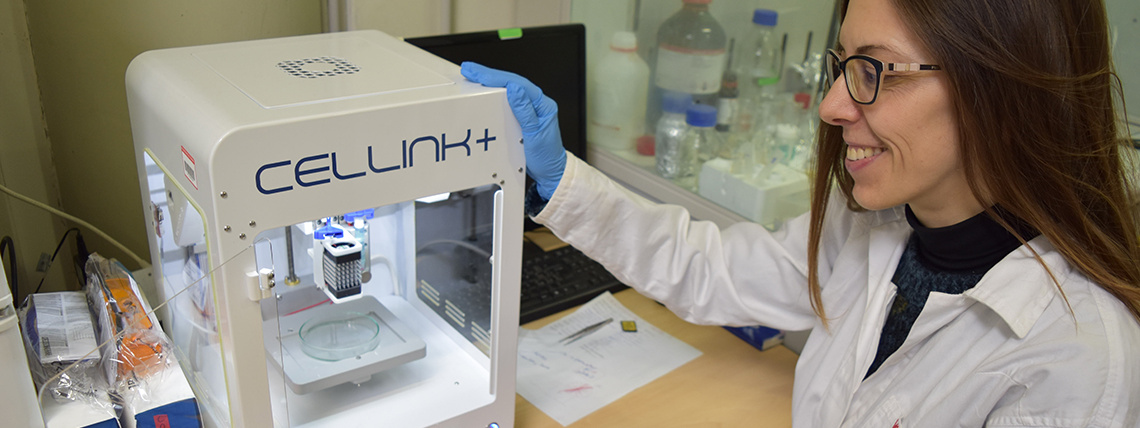The articles of the current edition are available on the new site.

When a myocardial infarction occurs, about one billion cardiomyocytes, the cells responsible for generating and transmitting the contractile stimulus that regulates the heart rate, die within a few hours. In fact, as a result of the infarction, the striated muscle tissue which the heart naturally consists of is transformed into a fibrous tissue, more rigid than the heart tissue and without cardiomyocytes capable of contracting.
To find a solution to this problem, which is one of the most serious consequences for those who survive a heart attack and in many cases can only be solved with a heart transplant, an innovative perspective comes from the European project BIORECAR-Direct cell reprogramming therapy in myocardial regeneration through an engineered multifunctional platform integrating biochemical instructive cues, which proposes a regenerative medicine strategy to restore the normal contractile function in the fibrotic cardiac tissues through what is defined as direct cell reprogramming, stimulated by the injection of biomaterials able to release specific factors. BIORECAR, coordinated by Professor Valeria Chiono of the Politecnico di Torino, is the latest project to be funded at the University, with 2 million euros over five years, by the European Research Council: a project that is an excellent example of how technological disciplines can find increasingly widespread applications in medicine and in the health sciences.
Valeria Chiono explains what inspired the project and what are its objectives: “Despite the gradual progress in the design of increasingly efficient scaffolds, the success of these approaches is significantly limited by the low regenerative capacity of the post-infarct myocardial tissue. In parallel, starting from 2010, the first results on the direct reprogramming of cardiac fibroblasts in cardiomyocytes have been published in the literature. Although research in the field is still in its infancy and the degree of cell reprogramming and reprogrammed cell maturity are still limited for clinical applications, this approach has the potential to revolutionise cardiac regenerative medicine. BIORECAR was born from the idea of combining my experience in the design of "biomimetic" polymeric scaffolds and drug delivery systems, with the new direct cell reprogramming approach, with the aim of making it more efficient and obtaining mature and functional cardiomyocytes. The funding obtained will allow me to coordinate a multidisciplinary research team for the design of biomaterials that will help to reprogram post-infarct fibrotic scars into functional tissue. The knowledge acquired will allow us to lay the foundations for a new possible treatment for both post-ischemic cardiac dysfunction, as well as that caused by other pathologies or by operations.”
The approach chosen by the BIORECAR project is that of direct cell reprogramming, which integrates nanomedicine, biomaterials science and tissue engineering. The project involves the design of innovative polymeric nanoparticles, specifically designed to reprogramme the cells in the post-infarct scar (fibroblasts), changing the gene expression of the cell, which at that point will be "reprogrammed" and transformed into a healthy cardiac tissue cell (cardiomyocyte). The nanoparticles will be directly administered into the infarcted tissue through an injectable hydrogel with additional functionalities to promote conversion of fibroblasts into functional cardiomyocytes.
The approach, which is currently being studied mainly in the United States, will be validated for the first time in Europe through an in vitro model of human fibrotic cardiac tissue, to be then experimented on an in vivo model.
The project team includes expert biologists and biotechnologists from other institutions, such as: Carla Divieto (INRIM, Turin), Elisa di Pasquale (Humanitas Clinical and Research Center, Milan), Franca di Meglio and Daria Nurzynska (“Federico II” University of Naples).